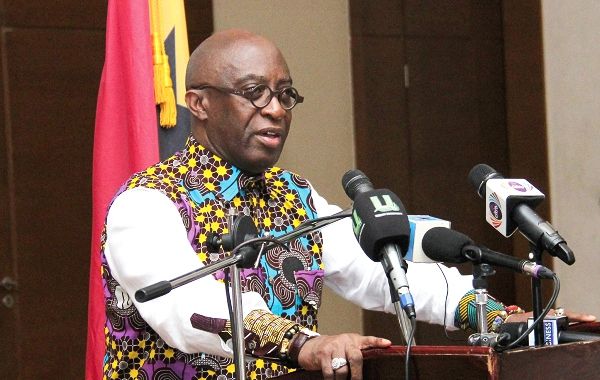The Ghana Investment Promotion Centre (GIPC) has expressed the hope that new investment inflows registered with the centre last year will generate about 27,110 jobs when they become fully operational.
According to the centre, 95.46 per cent of the jobs would be reserved for Ghanaians, while the remaining 4.54 per cent would go to expatriates.
The jobs would be generated from the 279 projects that were registered with the centre last year, it said.
The projects, valued at $2.8 billion, are an increase over 2019 investment inflows, in spite of the COVID-19 pandemic that broke out last year.
In total, the foreign direct investment (FDI) component amounted to $2.65 billion, a 139.06 per cent increase over that of 2019 when $1.1 billion came in through FDIs, with $145 million local matching funds.
The Chief Executive Officer of the GIPC, Mr Yofi Grant, announced this at a press conference on the Fourth Quarter 2020 Investment Report in Accra yesterday.
Global outlook
A report by the UNCTAD global investment trends monitor indicates that global FDI collapsed in 2020, falling by 42 per cent to an estimated $859 billion, from $1.5 trillion in 2019.
The decline was concentrated in developed countries, where FDI flows fell by 69 per cent to an estimated $229 billion.
Greenfield announcements fell by 46 per cent; 63 per cent decline in Africa, 51 per cent drop in Latin America and the Caribbean and 38 per cent in Asia.
Mr Grant said despite the grim economic outlook caused by COVID-19, overall FDI in developing countries such as Ghana appeared relatively resilient.
Projects
It comprised 129 newly registered projects, 131 upstream developments and 19 free zones activities dispersed across eight regions, with Greater Accra registering the highest number of 231 projects.
The others are Western 31, Ashanti seven, Volta three, Eastern three, the former Brong Ahafo Region two, with Central and Upper East registering one project each.
The services sector registered the highest number of projects of 184, followed by the manufacturing sector with 57.
Export trading, general trading and building and construction recorded 15, 10 and five projects, respectively; the mining and petroleum sectors had three projects each, while agriculture and liaison received a project each.
In terms of FDI values, the manufacturing sector recorded the largest value of $1.27 billion, followed by services, mining and petroleum with $656 million, $424 million and $222 million, respectively.
On the domestic front, additional equity (cash and goods) totaling $69 million was ploughed back as investment from 172 already existing companies, while $250 million (GH¢1.44 billion) was obtained from 52 wholly Ghanaian-owned firms.
Some countries that stood out as the nation’s leading sources of inward investments included China, the United Kingdom, South Africa, Australia and The Netherlands.
The country also recorded, among others, significant projects by Toyota Tsusho (automobile), Sentuo Oil Refinery (refining crude oil), the One Rand Group (manufacturing of real estate materials) and African Underground Mining Services (mining support services).
Rationale
Mr Grant further said the strong performance in Ghana’s inbound FDI, amid the global health pandemic, could be attributed to a combination of factors, including effective government policy responses, easing of travel restrictions and the delivery and expected future development of vaccines in-country.
The GIPC’s effort as the leading investment promotion agency also played a pivotal role in attracting investors, he said.
“As Ghana steps into an era of liberalised trade under the AfCFTA, there is even a stronger commitment from the centre to boost investor confidence and ultimately harness valuable investment for the country, now Africa’s business capital,” he added.
Source: www.graphic.com.gh


